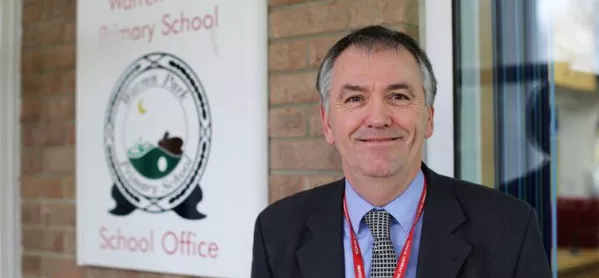Last week I sent off for the job details to be “Her Majesty’s Chief Inspector of Education”.
Why, you may ask, would I, or anyone in fact, want to take on such a thankless role?
Let’s have a think about it.
The downloaded paperwork was as you would expect: in-depth and bureaucratic, with every education buzzword present and correct.
One statement stood out to me, however: “You would also be responsible for leading Ofsted’s important engagement with parents, carers and professionals and for shaping Ofsted’s public profile.”
What could better encapsulate the importance of getting this job right?
This brief represents the opportunity to actually put Ofsted in a position where it once again has the respect of the professionals who are on its receiving end.
Recently I wrote of the need to reform Ofsted radically, arguing that it needs to recover respect from the profession and that it also needs to move away from its narrow data-based focus, to one where the individual teacher and individual pupil sits at the centre of the process.
What experience, you may ask, qualifies me to make such sweeping statements about the inspectorate? The answer lies in my 37 years as a teacher and 25 as a head. In that time I have experienced all of the most recent incarnations of the regime. (There was once a time, believe it or not, when we were given eight months’ notice of an inspection, and when it arrived it came in the form of six inspectors who stuck around for a whole week and produced a report that ran to more than 50 pages.)
Personally, I have experienced six inspections, and have received glowing reports. I have also trained as an Ofsted inspector, as well as being a county inspector. I have also supported many schools through the process.
It’s safe to say I have had my fair share of Ofsted.
Like me, I am sure most education professionals would agree that some accountability is necessary, but like me most would say there needs to be a more positive engagement with the process.
‘Work with the teachers’
But what is up for discussion, with the change at the top of Ofsted, is the oppression it represents to so many and its narrow parameters.
Is it right that up and down the country every week we have literally thousands of individuals dreading the midday phone call?
With all this in mind, I have suggestions for the individual who secures this post.
- Firstly, we must get Ofsted and the Department for Education working together for the betterment of education. We are fed up with being political footballs. We need a clear plan for education, offered in advance, well thought through by professionals with the child at its very centre.
- Secondly, we need to get away from just inspecting data. We all know it has a role, but it must be understood that we are at risk of creating a generation of test junkies, with a limited range of skill and experiences. What a sad indictment of the current regime.
- Thirdly, the new chief inspector needs to talk with teachers, and their representatives, and actually listen to them. That person needs to realise why teachers are leaving in droves.
- Fourthly, we need to reach a position where, as a profession, we genuinely believe the system is fair. We need inspectors worthy of that role and a robust complaints procedure, and to see the regime working with the profession not against it.
- Lastly, we need someone who through every pore of their body cares about this profession, and the people who work in it. Wouldn’t it be wonderful if in the next few years we actually felt we received some praise for once? Someone who talked to the media and told the success stories and spoke about the thousands of teachers who sweat blood to ensure every child succeeds no matter their starting point.
There it is; my suggested covering letter for any prospective candidate.
Of course, that person must also satisfy the seven official Principles of Public Life. For those unaware of these, they are selflessness, integrity, objectivity, accountability, openness, honesty and leadership.
Now please don’t get me started on my thoughts on that…
Colin Harris is headteacher of Warren Park Primary School in Havant, Hampshire
Want to keep up with the latest education news and opinion? Follow TES on Twitter and like TES on Facebook




